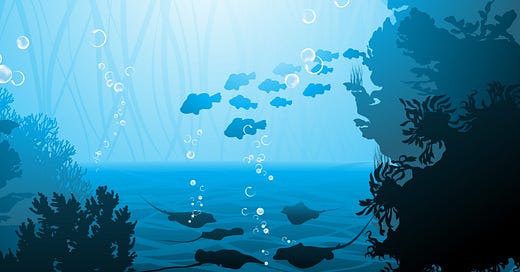Have you taken the Author Ecosystem quiz? Find out your archetype here:
https://authorecosystem.com
The Basics of the Aquatic Archetype
Most important resource: vision
Superpowers: Huge vision, high energy, team building, brand management
Examples of Aquatics: Stephenie Meyer, Stan Lee, George Lucas
Aquatics are excited about everything and want to create an immersive experience for their fans. They know exactly what their fans want and this dictates both what they create and how they market it. If their fans want to see their bestselling novel as a comic book, they create it for them—even if they have no idea how to do a comic book.
The key with Aquatics is that they are brand managers. Their loyalty is on the overall brand and servicing their fans with different types of products. Aquatics see books as a means to service fans of their brand, but they are equally excited about RPGs, pins, movies, and everything else that can exist beyond the books.
Because Aquatics build their business to maximize customer lifetime value across an entire brand by leveraging many different formats, they must be competent at many skill sets, like building large stories and worlds, delegating responsibilities, building a functional team that understands the bigger vision, maintaining a strong connection to fans, and expanding slowly and as time, energy, money, and other resources allow.
Often, an Aquatic is intentionally overshadowed by the brand they are growing. Usually, your first introduction to an Aquatic is through one of the many tendrils they have extended pointing back to their brand. Whereas, a forest is almost always central to their brand, an Aquatic often disappears into the background.
Healthy Aquatics thrive by creating cool new products that both service their current audience and help them grow a larger audience in different pockets of fandom. Unhealthy Aquatics create too many products without having a team in place to help share the load, spread themselves too thin and lose momentum by growing too fast, or create products they want to exist instead of focusing on what their audience wants to buy from them.
Does this sound like you?





